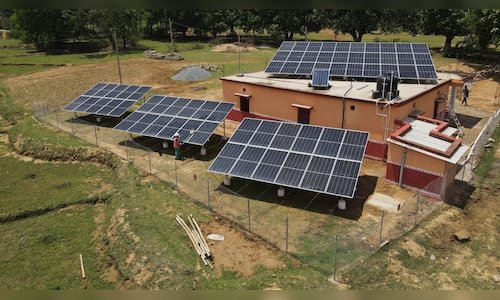According to sources speaking to CNBC-TV18, over ₹16,000 crore of the scheme’s outlay is expected to remain underutilised. Of the ₹24,000 crore allocated to the programme, ₹21,000 crore may be redirected toward launching a third tranche.
The PLI scheme for the National Programme on High-Efficiency Solar PV Modules was approved in two phases, with allocations of ₹4,500 crore and ₹19,500 crore, respectively. A total domestic solar PV module manufacturing capacity of 39,600 MW has been allocated to 11 companies.
The production of solar wafers and ingots requires expertise across the value chain, including raw materials, technology, and technical know-how. In a sector dominated by China, industry players have cited delays in visas for skilled Chinese professionals as a challenge in scaling up domestic production.
Government sources told CNBC-TV18 that challenges in acquiring technology for polysilicon-based ingots and wafers have been raised with the Ministry of External Affairs (MEA) for a diplomatic resolution. They noted that the global supply chain for these components is heavily reliant on China, making it difficult for PLI beneficiaries to secure the necessary technology.
In addition to technology constraints, domestic solar equipment manufacturers are facing pressure from cheap imports, which could make their businesses uncompetitive. Around two weeks ago, the Indian Solar Manufacturers Association (ISMA) urged the Ministry of New and Renewable Energy (MNRE) to impose a safeguard duty on imported polysilicon-based ingots and wafers to boost domestic production and prevent dumping.
Chetan Shah, Chairman and Managing Director of solar module manufacturer Solex Limited, noted that China has been reluctant to transfer technology, and production ramp-up has been hampered by high capital expenditure and delays in visas for skilled Chinese professionals. He emphasised the need to encourage local manufacturing, citing the success of India’s mobile phone production sector.
